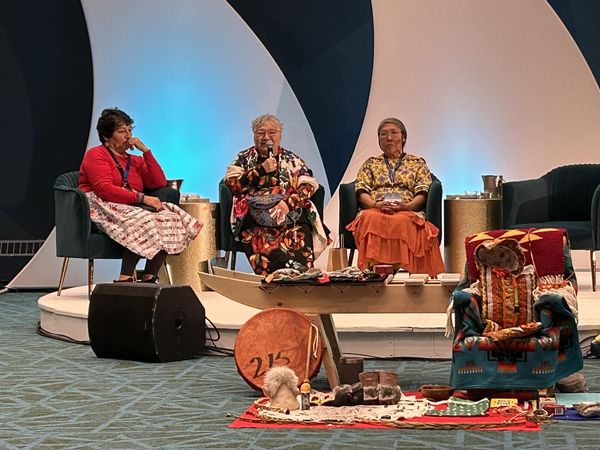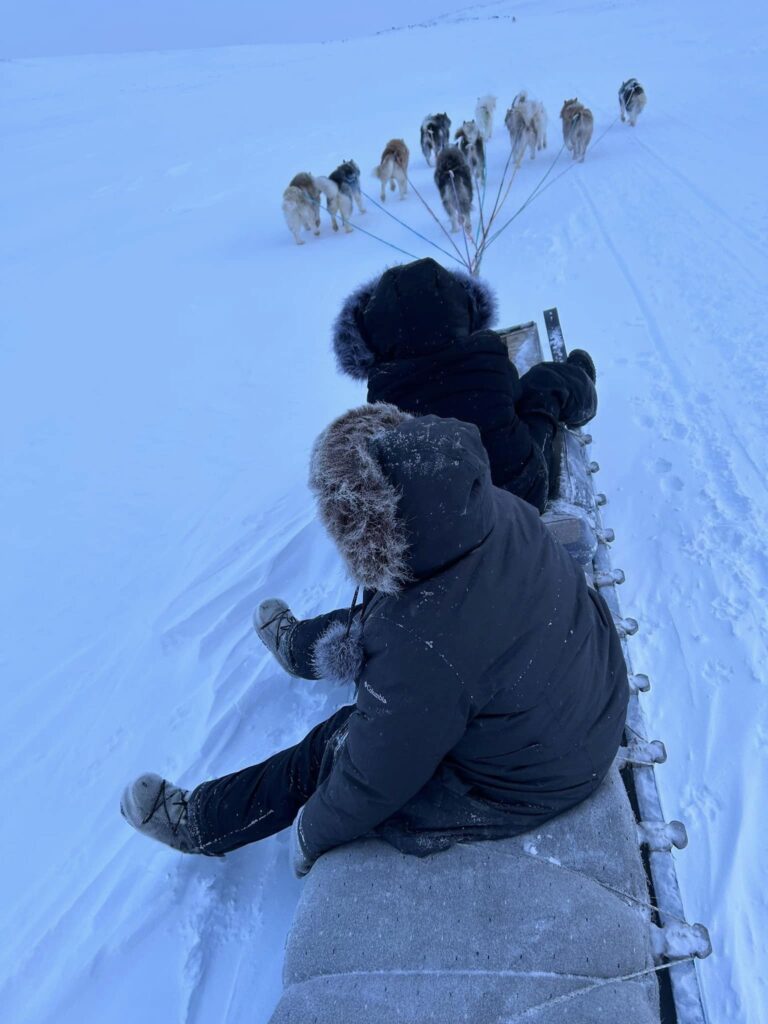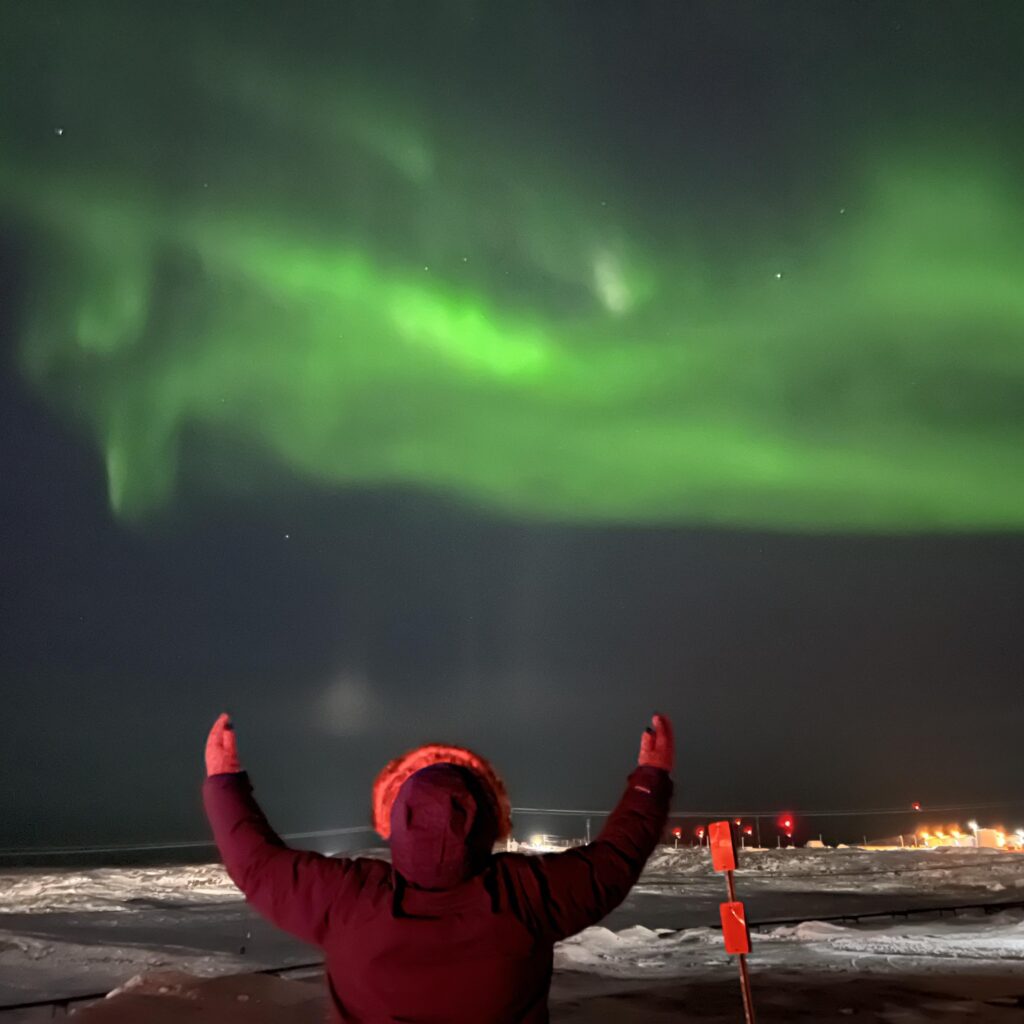As we approach the final OSI National Gathering on Unmarked Burials beginning October 29, 2024, we reflect on the impactful discussions from the Northern Voices OSI gathering held this past January in Iqaluit, where Indigenous communities united to confront the legacy of missing children and unmarked burials associated with Indian Residential Schools in Canada. The Survivors’ Secretariat was proud to attend this gathering, engaging with Survivors and Indigenous leaders to advocate for truth, justice and healing.
The Special Interlocutor, led by Kimberly Murray, has a two-year mandate (2022-2024) to develop a federal legal framework ensuring the respectful treatment of unmarked graves and burial sites of children from former Indian Residential Schools and related institutions. This initiative emphasizes collaboration with First Nations, Inuit, and Métis communities, Survivors, families, and various government levels.
The final report on unmarked graves and burial sites will present recommendations for the Federal Legal Framework, set to be released at the upcoming gathering.
Key Elements of the Final Report:
- Recommendations: It will outline necessary measures related to federal laws, regulations, policies, and practices concerning unmarked graves and burial sites at former Indian Residential Schools and other associated sites.
- Research Basis: The report will draw on insights gathered from National Gatherings, meetings, submissions, community visits, and research conducted during the mandate.
This report aims to provide a comprehensive framework to address critical issues surrounding unmarked graves and enhance legal protections under Canadian law. For more information and to access relevant reports, please visit: Reports – Office of the Independent Special Interlocutor (osi-bis.ca)
To read more about January’s OSI gathering, please see below:
In late January, the Survivors’ Secretariat participated in a three-day National Gathering held by the Office of the Special Interlocutor (OSI) for missing children and unmarked burials associated with Indian Residential Schools in Canada. This event was held in the in the Qikiqtaaluk Region of Iqaluit, Nunavut, on the beautiful and traditional lands of the Inuit.
The Northen Voices Gathering brought together Indigenous communities, organizations, Survivors, Intergenerational youth and speakers from across Canada to discuss the critical issues pertaining to the search for missing children and unmarked burials.

"This national gathering will provide an opportunity for us to learn from Survivors, from elders, knowledge holders, intergenerational Survivors, youth, Indigenous leadership and the ground search teams that are leading search and recovery efforts in their own communities." - Kimberly Murray, Independent Special Interlocutor

Conference Highlights
The journey to locate, honour and remember the missing children continues, guided by the voices and resilience of Survivors across Canada. A few presentations stuck out to Survivors’ Secretariat participants including:
- Emotional Testimonies from Three Survivors, Navalik Tologanak of Cambridge Bay, Alexina Kublu of Igloolik, and Elise Cardinal of Fort Chipewyan Métis Nation.
- The Starblanket Cree Nation presentation which shared their insights, findings and ground search techniques in relation to the former Qu’Appelle Indian Residential School (QIRS).
- The ongoing discussions and efforts of Indigenous communities to assert their sovereignty and control over data will play a crucial role in shaping the future of unmarked burials and Indigenous rights in Canada.
- The discussions on addressing trauma and the need for Indigenous health and wellness supports for Survivors, families, and communities in relation to the search and recovery of unmarked burials and missing children.
- The barriers identified, which relate to accessing records associated with missing and unmarked burials at Indian Residential Schools and the presenter’s emphasis on the need for a culturally sensitive approach.
- The laws and protocols related to the protection of lands associated with missing children and unmarked burials.
The Survivors’ Secretariat is looking to further advance the conversations around these topics in the coming years and is hopeful for a national conversation with lead Survivor organizations to share what each has learned during the initial 3-year funding package for missing children and unmarked burials.

Challenges in Northern Communities
Each OSI National Gathering has been unique to the people and territory it is held in. Northern communities face their own unique challenges such as limited resources and programs. Conference discussions highlighted the centralized nature of support programs, which often left out smaller Northern communities compared to larger cities and urban areas.
The current challenges of locating and commemorating missing children of the Inuit communities involves searching the grounds of TB Sanatoriums for missing and unmarked burials.
The Tuberculosis epidemic was prevalent in Canada from the 1940s through to the 1960s. During the 1950s, at least one-third of the Inuit population was infected with tuberculosis. Approximately 4,500 Inuit were sent down south for treatment and approximately 900 never returned home and were buried away from home. Many children went missing or were lost in the system, and their families were often left searching for answers and closure.
“It's not good enough that funding is only available to search the grounds of Indian Residential Schools recognized under the Indian Residential Schools agreement because we know children died at other institutions" - Kimberly Murray, Independent Special Interlocutor

Northern Voices of Indigenous Youth Panel
In a gathering filled with raw emotions, Indigenous Youth shared their profound reflections and personal perspectives on the lasting impacts of Indian Residential Schools.
Throughout the discussions, the panel delved into the ripple effects of Intergenerational trauma. Many voiced experiences of abuse, feelings of shame and a sense of abandonment. Inheriting not the direct experience but the behaviors learned within the walls of those institutions. As one youth stated, “We never had the residential school experience, but we got the aftermath.”
A statement that has echoed throughout several generations. The youth bravely spoke about the links between intergenerational trauma to issues like substance abuse and mental health challenges.
In response, the youth panel advocated for more localized health and wellness initiatives, recognizing the urgent need for tailored support to address the specific challenges faced by their communities.
“Understanding this history, it can help us better understand ourselves, our families and our communities' dynamics. Acknowledging these cycles can help raise our awareness of them, then education and proper sustainable support systems can help end them.” - Meghan Metz

About OSI
Their mandate includes examining existing laws and practices at federal, provincial, and territorial levels, with a focus on developing a new comprehensive federal legal framework. This framework would be designed to identify, protect, and preserve unmarked burial sites connected to former Indian Residential Schools and associated lands.
The Special Interlocutor has a two-year mandate (2022-2024) and has delivered an interim report. At their final gathering, scheduled for October 2024 the Interlocutor will release its final report with recommendations to the federal Minister of Justice and the Attorney General of Canada.
“Many communities were deeply impacted by what we know were racist and colonial residential school policies. The experiences and stories you’ve shared, through these times of incredible injustice, have made a significant impact. Canada is listening and reconciling these truths, and we are striving to right past wrongs in collaboration with communities. In the north and across the country Indigenous communities and organizations are doing the crucial work to research, locate, and document burial sites associated with former residential schools.” – Gary Anandasangaree, Minister of Crown-Indigenous Relations

Survivors' Dedication
The significance of national gatherings lies in the dedication and advocacy of Survivors who have tirelessly spoken truths about the children taken and never returned home. As the event concluded, gratitude was expressed to those leading the search and recovery work in over 100 communities across the country.
As Survivors, Indigenous families, and communities continue to work towards the respect and dignified treatment of the children’s bodies and spirits, we are reminded of the resilience that flows through Indigenous communities. Their truths compel us to confront the shadows of history and work towards a future built on healing, understanding, and unity.
Nia:weh, Miigwetch to the Inuit of the Qikiqtaaluk Region of Iqaluit, for welcoming the Secretariat team into their territory and to the Survivors’ for continuing to discuss such sensitive subjects with courage, dignity and strength.
To watch a full recap of the OSI gathering, please visit:
